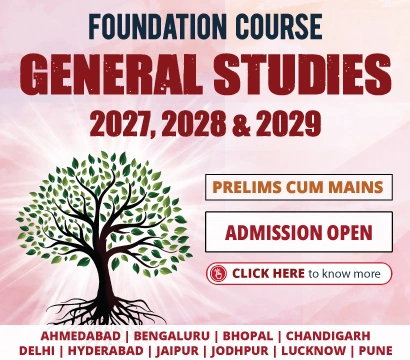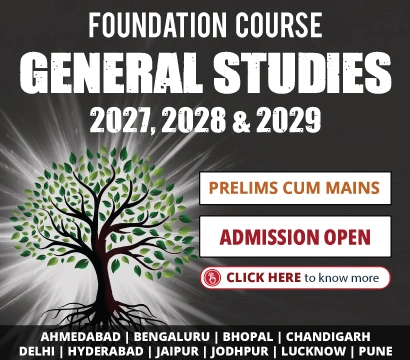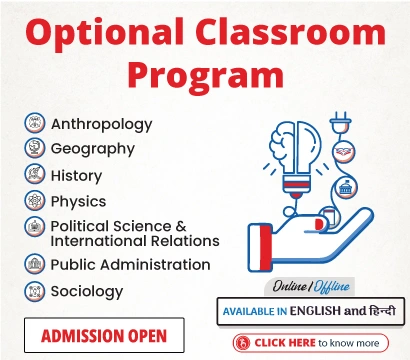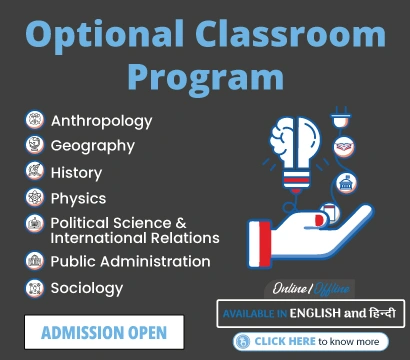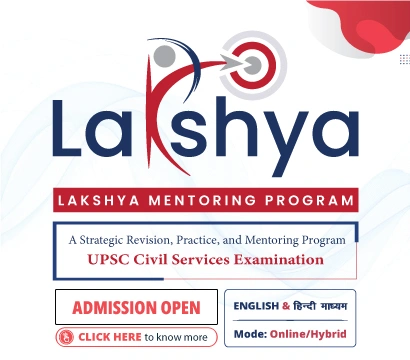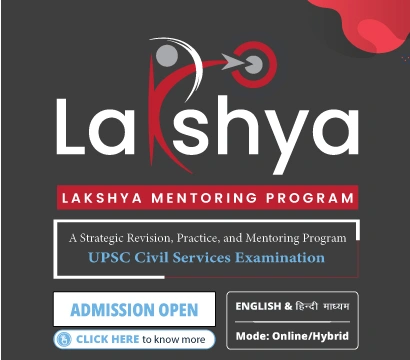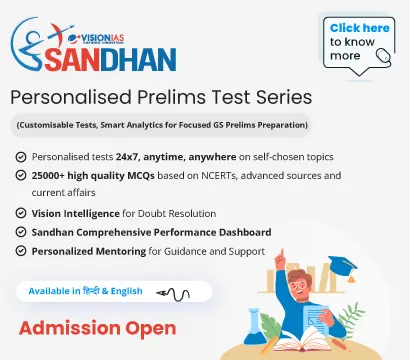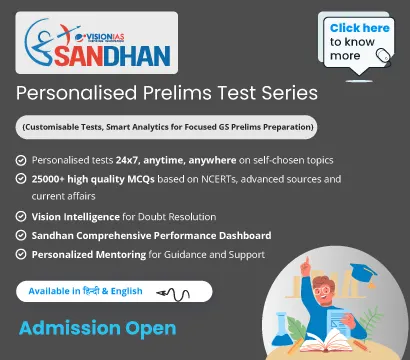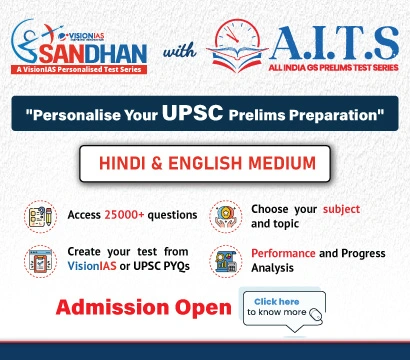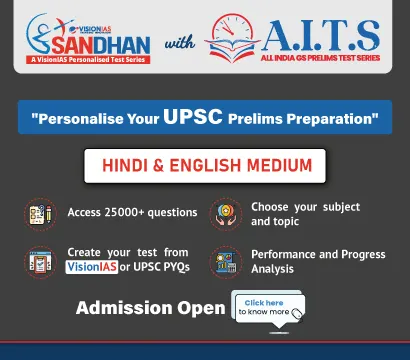Essay
A Comprehensive Guide to Approach UPSC Essay Paper

The Union Public Service Commission (UPSC) Civil Services Examination is a renowned pathway to some of the most prestigious careers in India, including the Indian Administrative Service (IAS), Indian Foreign Service (IFS), and Indian Police Service (IPS). The Essay Paper, a critical component of this examination, tests aspirants not just on their knowledge but also on their ability to think critically, articulate ideas, and present arguments coherently. This paper can be a game-changer, significantly impacting overall rankings in CSE exam. Understanding its importance, this article aims to be an extensive guide, offering strategic insights into preparing for and excelling in the UPSC Essay Paper. Here, we will delve into understanding the nature of the paper, developing effective writing strategies, and providing practical tips to enhance essay-writing skills.
What is the UPSC Essay Paper?
In the UPSC Mains examination, the essay paper is a formidable segment, accounting for 250 marks. Candidates are required to compose two essays, each from a different section, within the confines of 1000-1200 words. This paper is distinctive as it evaluates an aspirant’s proficiency in articulating thoughts, structuring arguments, and presenting ideas effectively. A well-written essay demonstrates an aspirant’s depth of understanding, analytical abilities, and clarity of thought.
Analyzing Past Years’ Trends
A thorough examination of past years’ essay questions reveals a rich tapestry of themes, encompassing philosophy, governance, technology, education, and current affairs. A trend analysis shows a shift towards more abstract themes, requiring a deep understanding of various societal and global issues. Aspirants should study past papers to discern patterns and prepare accordingly.
Selecting the Right Topic
Selecting the right topic for the UPSC Civil Services Examination (CSE) essay paper is a pivotal step. Students should consider their personal interests and knowledge while choosing a topic because interest, coupled with quality content, is essential for crafting a compelling essay. Balance is key; the topic should permit a comprehensive discussion within the prescribed word limit and should encourage presenting multiple facets of the issue. Moreover, It’s essential to opt for a topic that is pertinent to current issues and aligns with the socio-political landscape. A topic that genuinely engages the writer often results in a more thoughtful and insightful piece of writing. Avoiding extreme or highly technical topics is advisable, as clarity and coherence are vital for effective essay writing. Regular practice on various topics and themes will help in identification of own interest area and help in topic selection.
Structuring the Essay
Structuring an essay for the UPSC essay paper involves several key aspects. One should begin with a compelling introduction that provides context and a clear thesis statement outlining the essence of the topic. Then, it is essential to organize essay into coherent body paragraphs, each addressing a specific aspect or sub-topic related to the thesis. Here, one should offer multiple perspectives on the topic while maintaining a balanced approach. Then in the end, conclude by summarizing key points and reiterating your thesis without introducing new ideas. Here, thoughts should be invested in ensuring clarity, coherence, and adherences to the word limit, and maintain a formal and consistent writing style.
Crafting Compelling Introduction
An effective introduction in the UPSC essay paper is crucial as it highlights the relevance of the chosen topic, setting the stage for the entire essay. Much like a trailer to a movie, it captivates the reader’s interest and gives a glimpse of what to expect. A well-crafted introduction not only outlines the essay’s direction but also establishes the tone, making it an indispensable element that engages and prepares the reader for the ensuing analysis and arguments. An ideal introduction should typically be concise, spanning about 100-150 words, providing a clear and engaging overview of the topic to capture the reader’s attention.
Different Ways to Introduce
In a UPSC essay paper, there are myriad ways to introduce an essay that can set a strong foundation for the arguments to follow. One can start with a compelling quotation that resonates with the essay’s theme, providing a philosophical or ethical anchor to the narrative. Introducing a personality can humanize the essay, connecting the reader with a relatable figure. Facts, reports, or indexes can offer a factual and statistical ground, illustrating the gravity of the subject matter.
Anecdote based introductions are favourite to toppers in recent. An anecdote can add a personal touch, often making the essay more engaging and memorable. Defining keywords helps in establishing clarity and focus in essays which are based on some technological themes like Crypto-currency or Smart governance kind topics.
Case studies based introductions can exemplify the real-world implications of the topic, while references to books and movies can contextualize the essay within broader cultural narratives. Each approach has the potential to engage the reader differently, and the choice largely depends on the topic, the writer’s style, and the intended impact of the essay.
Developing the Body of the Essay
In the UPSC essay exam, the development of the essay’s body is a critical component, and several factors should be carefully considered. Around 60-70 Percent of writing space and time should be invested in framing the essay’s body.
- Use of Dimensions: To begin with, adopting a sectoral and temporal analysis approach is crucial. This entails dissecting the topic into various sectors such as social, political, historical, economic, cultural, environmental, ethical, sustainable, science and technology, and on time scale. Each sector should be explored and linked back to the central theme to provide a comprehensive examination. Additionally, acknowledging social dimensions, including factors like caste, gender, class, religion, and regional influences, is essential for a well-rounded analysis.
- Use of Headings: Judicious use of headings can enhance the organization of the essay. While it’s advisable to employ headings to improve clarity and structure, they should not be overly forceful or dominant. Subheadings, decided during the brainstorming phase, add an attractive element and showcase your understanding of the topic. However, it’s crucial to ensure that subheadings remain relevant and do not disrupt the essay’s coherence. Simple underlining with a black pen is sufficient, and it’s best not to exceed 4-5 subheadings, as excessive use may detract from the overall impact of the essay.
- Use of Diagram: While incorporating diagrams into an essay can enhance comprehension, it’s essential to exercise caution and avoid overloading the text. Limiting the use of diagrams to a maximum of two, keeping them simple yet informative, is advisable. These diagrams should seamlessly complement the essay’s content without disrupting its flow. Instead of replacing textual information, diagrams should serve as supplementary visual aids, enhancing the reader’s understanding of the topic.
- Data in Essay: Incorporating data into an essay can bolster its credibility and persuasiveness, but it’s vital to strike a balance. Overloading the essay with excessive data can overwhelm readers. Instead, data should be judiciously employed as supporting evidence to reinforce the argument being made. It should seamlessly integrate into the narrative, adding depth and validation without overshadowing the essay’s overall message or disrupting its flow. Quality and relevance should always take precedence over quantity when incorporating data.
- Flow and Coherence: While crafting the body of the essay, maintaining a smooth flow and coherence is paramount. This involves structuring the content logically, employing transitions, and using topic sentences to connect paragraphs seamlessly. Avoiding abrupt shifts in thought and maintaining a clear and organized progression of ideas is crucial for reader comprehension.
- Language: In essays, it’s essential to maintain simple, clear, and grammatically error-free language. Avoiding jargon and overly flowery language ensures that the essay remains accessible and easily understood by a broad audience. Clarity and precision in expression are key to effective communicate thoughts, opinions and ideas to the reader.
In UPSC essays, presenting an antithesis can showcase a balanced perspective. For instance, in an essay discussing the topic “Not all who wander are lost,” one can predominantly argue in favor, highlighting the benefits of exploration and non-conformity. However, it’s also crucial to dedicate a separate paragraph towards the end, acknowledging the existence of situations where wandering may indeed lead to getting lost, emphasizing the need for cautious and informed wandering in some cases. This approach demonstrates a nuanced understanding of the topic. In sum, a well-structured and comprehensive body section is essential for achieving success in the UPSC essay exam.
Concluding with Impact
In UPSC essays, crafting a compelling conclusion is of paramount importance. It serves as the final touch, offering a sense of closure and completeness to your essay. Instead of merely summarizing the points discussed, a strong conclusion should provide a way forward. It can offer practical solutions, both long-term and short-term, to the issues or questions raised in the essay, demonstrating a forward-thinking perspective.
There are various effective ways to structure a conclusion, including using quotations, stories, poems, or employing a cyclic approach that circles back to the essay’s opening theme. Quotations can provide a thought-provoking insight, stories can illustrate your point vividly, and poems can add an emotional dimension. A cyclic approach revisits the initial theme, showcasing how your essay has come full circle, leaving a lasting impression on the reader. Ultimately, a well-crafted conclusion not only summarizes your arguments but also leaves the reader with valuable insights and a sense of purpose.
Need of Effective Brainstorming
Brainstorming plays a pivotal role before composing an essay in the UPSC mains exam. It serves as a creative avenue for generating unique ideas, enriching the content. Additionally, it facilitates the exploration of diverse dimensions related to the topic, ensuring a comprehensive analysis. By dedicating 15-20 minutes per topic for brainstorming, candidates lay a strong foundation, aiding them in organizing their thoughts effectively and ultimately crafting well-structured essays. This process is vital for producing insightful and engaging essays that can leave a lasting impression on examiners.
Importance of Regular Practice
Practice is the cornerstone for success in UPSC essay writing, not only for time management, and effective articulation but for organization of ideas. Regularly practicing essay writing allows candidates to assess their strengths and weaknesses. Through self-evaluation or seeking feedback from mentors or peers, they can identify areas for improvement and refine their writing skills.
Constructive feedback helps candidates understand where they can enhance their arguments, language, and overall essay structure. It enables them to rectify common errors and gradually evolve into more proficient essay writing. In essence, practice coupled with evaluation and feedback creates a continuous improvement loop, making candidates better equipped to excel in the UPSC essay paper.
Approach to Writing Opinion-Based Essays in UPSC
The essay paper in UPSC CSE has evolved since 2018, introducing distinct sections focusing on information-based and opinion-based topics. Opinion-based essays, growing in prominence, demand not only factual information but also a unique perspective on the issue. Such essays, like ‘Wisdom finds Truth’ or ‘Biased media is a real threat to Indian democracy’, require a deeper understanding and a philosophical or ethical viewpoint. It’s essential to interpret these topics from a broader perspective, encompassing various aspects of life rather than limiting them to narrow fields like social, economic, or political angles.
For crafting compelling opinion-based essays, understanding the underlying concepts is key. For instance, comprehending ‘Wisdom’ as the pinnacle of knowledge and ‘Truth’ as the ultimate form of learning enables one to explore the interconnection between these concepts. This approach not only enhances the depth of the essay but also makes the arguments more persuasive and relevant to the topic.
Writing successful opinion-based essays for UPSC demands a blend of factual knowledge, conceptual understanding, and the ability to view issues from a broader, more philosophical or ethical standpoint. This approach makes the arguments more impactful and aligns them closely with the essence of the topic.
Overcoming Challenges in Essay Writing
Overcoming challenges in essay writing requires a multifaceted approach. First and foremost, understanding the essay topic is crucial. Carefully analyze the prompt to grasp its nuances and requirements fully. Next, effective planning and brainstorming are essential. Create a well-structured outline that includes an introduction, body paragraphs, and a conclusion. Allocate specific time slots for each stage of the writing process to manage time effectively.
Clarity and conciseness are paramount. Use simple, clear language to convey your ideas without unnecessary complexity or jargon. Organize your essay logically, ensuring that each paragraph has a clear topic sentence, and ideas flow seamlessly. Develop a strong thesis statement that encapsulates your main argument, with every paragraph connecting back to it. Supporting your arguments with evidence, examples, and citations lends credibility to your essay.
Revision is vital in essay preparation. Seeking feedback from peers, mentors, or teachers can provide valuable insights and suggestions for improvement. Consistent practice on various topics is key to honing your essay writing skills. Staying informed about current affairs, literature, and relevant subjects expands your knowledge base. Managing stress is also crucial, particularly in timed exams like UPSC; practice relaxation techniques, time management, and maintaining composure under pressure. Overcoming essay writing challenges is a gradual process, and with persistence and patience, your skills will improve over time.
In conclusion, essay writing transcends being a mere assessment of one’s knowledge; it evaluates a plethora of qualities essential for an effective civil servant. The essay paper serves as a litmus test for an individual’s personality, encapsulating their character and values on paper. Consequently, candidates should not underestimate its significance but rather approach it with diligence and dedication. By preparing comprehensively for the essay component of the UPSC Mains exam, aspirants not only enhance their chances of success but also cultivate the holistic qualities demanded of a competent civil servant. Therefore, recognizing that an essay is a reflection of one’s personality on paper, candidates are encouraged to give it the attention it deserves, contributing to an overall superior performance in the examination.






























